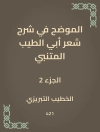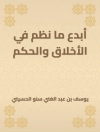In ‘The Birth of the War-God, ‘ the illustrious poet Kálidása weaves a rich tapestry of mythology and epic narrative, exploring the birth of the divine warrior Skanda through a lush, lyrical style characteristic of classical Sanskrit literature. The poem is not merely a celebration of martial valor but also an exploration of complex themes such as destiny, duty, and the divine interplay of creation and destruction. Kálidāsa’s profound command of language and vivid imagery brings forth a world where gods and mortals intertwine, inviting readers into a timeless narrative that reflects the cultural fabric of ancient India. Kálidāsa, often hailed as one of the greatest Sanskrit poets and dramatists, lived during the Gupta period, a time marked by significant advancements in art, literature, and philosophy. His works illustrate a deep appreciation for nature and a keen understanding of human emotion, likely shaped by his life experiences and the socio-cultural milieu of his time. This rich background informs the epic grandeur and spiritual depth permeating ‘The Birth of the War-God, ‘ offering an insightful perspective into the mythological traditions he sought to immortalize. Recommended for readers interested in ancient literature, mythology, and the interplay of divinity and humanity, this poem stands as a testament to Kálidāsa’s genius. The intricate layers of his narrative provide not only aesthetic pleasure but also profound philosophical insights, making it an essential addition to any literary collection.
Circa l’autore
Kalidasa is one of the most eminent classical Sanskrit poets whose literary works have transcended time, earning him a revered place in Indian literature. There is little concrete historical data concerning his life, with accounts of him varying quite considerably. His period is also not precisely determined, with scholars suggesting dates that range from the 1st century BCE to the 4th century CE. Despite these uncertainties, Kalidasa’s work exhibits mastery of Sanskrit poetics and profound knowledge of Indian mythology and culture, placing him in the Gupta period, which is often referred to as the Golden Age of India. Among Kalidasa’s surviving corpus, the epic poem ‘The Birth of the War-God’ (Kumārasambhava) stands out as a remarkable work that skilfully combines elaborate metaphor, rich descriptions of the natural world, and insights into human emotions. The poem narrates the story of the birth of Kartikeya, the god of war, to aid the gods in their battle against the demon Taraka. Renowned for his exquisite similes and metaphors, Kalidasa’s poetry is characterized by his delicate portrayal of both the sensuous and the sublime. His work continues to be celebrated for its beauty, erudition, and the sophisticated interplay of the elements of nature and human emotion, influencing generations of writers and poets both within and beyond the boundaries of India.












